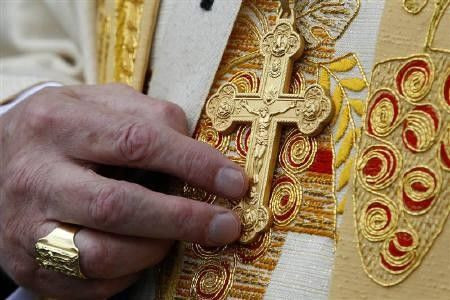Australian Cardinal Pell Admits Limiting Compensation to Sex Abuse Victims, Afraid Church Will Go Bankrupt

Australian Cardinal George Pell, who is set to become Vatican's keeper of finances, on Wednesday admitted limiting compensation to victims of sex abuse because of fears the Archdiocese of Sydney will go bankrupt.
Since creating the Melbourne Response in the 1990s, a victim may only receive a compensation of a maximum $50,000. That was the Australian church's cap on payouts.
He said he does not want the Australian Catholic church suffering the fate of dioceses in America because "Australia is not America" where there are "an enormous number of lawyers."
Cardinal Pell also said he could not accept that the church will issue payouts to its victims more than any other institution in Australia.
"I did not want that to happen just to us," he said.
Read: Catholic Faith and Sex Abuse: Royal Commission Confirms Sydney Catholic Archdiocese is Rich, Has $1.24B Worth of Assets Plus More
While regretful that church lawyers had to "vigorously" and "strenuously" defend the institution from sex abuse claims of John Ellis, Cardinal Pell explained he was made to believe such was a "legally proper tactic, strategy."
What he does want, he said before the royal commission on Wednesday, is that plaintiffs should "think twice... think clearly" about suing the church.
"They should consider the advantages in not going to litigation," he said.
Mr Ellis sued the church over the abuse he suffered from the hands of a priest in the 1970s when he was between 13 to 17 years old. He lost the case when a court ruled the trustees weren't liable in 2007.
The litigation broke him financially and mentally. It cost the Australian Catholic church $1.5 million, including $568,000 in ex gratia payments to Mr Ellis.
Mr Ellis used to be a $300,000 a year partner with Baker & McKenzie as a senior lawyer.
While Cardinal Pell accepted his allegations, he said he wanted his claims put "to the proof." After all, he was a brilliant lawyer and should have been able to make the distinction, Cardinal Pell said.
Yet, Cardinal Pell was remorseful over the extent of grueling cross examination Mr Ellis had to go through.
"For a long time I proceeded on a somewhat mistaken estimate of Mr Ellis, unfortunately," he said.
"[Ellis] presented so well, he's such a senior lawyer, he was represented by two very high-level lawyers. I understood insufficiently just how wounded he was. We would never have run this case against many of the victims who have come forward because they're manifestly so wounded."





















